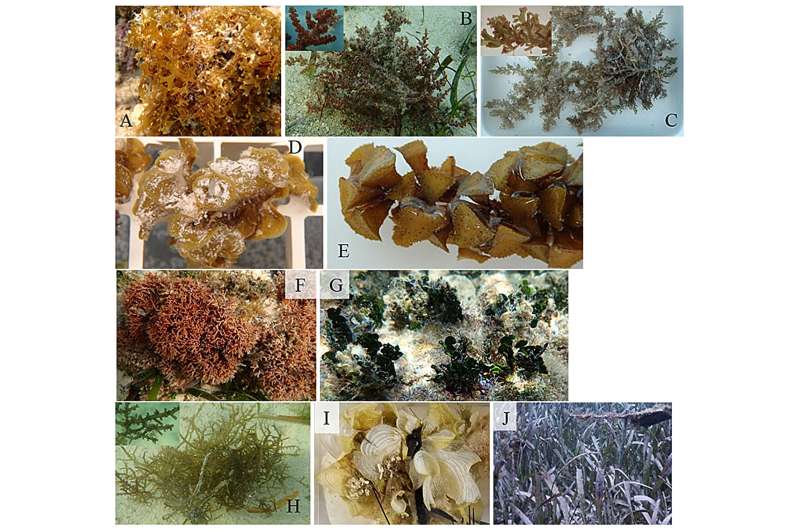This article has been reviewed according to Science X's editorial process and policies. Editors have highlighted the following attributes while ensuring the content's credibility:
fact-checked
peer-reviewed publication
trusted source
proofread
New study reveals the crucial role of herbivorous fishes and sea urchins in restoring Caribbean coral reefs

A new study by Dr. Lindsay Spiers (Florida Fish and Wildlife Conservation Commission) and Professor Thomas Frazer (College of Marine Science at the University of South Florida), published in PeerJ presents crucial findings on the feeding preferences of herbivorous fishes and the sea urchin Diadema antillarum in Little Cayman.
The study, titled "Comparison of feeding preferences of herbivorous fishes and the sea urchin Diadema antillarum in Little Cayman," sheds new light on the dynamics of these herbivores and their impact on the resilience of Caribbean coral reefs.
Caribbean coral reefs face significant challenges, including the decline of herbivorous fishes and Diadema antillarum populations, leading to the proliferation of macroalgae. These changes have been detrimental to the health and coral cover of these reefs. This research aims to understand the feeding preferences of these herbivores and their combined impact on macroalgal communities, which has been a relatively unexplored aspect of reef ecology.
The study employed a series of in-situ and ex-situ feeding assays to investigate the feeding preferences of herbivorous fishes and Diadema antillarum. Ten macrophytes, including a variety of palatable and chemically and structurally defended species, were used in the assays. The results were striking, revealing important insights into the behavior of these herbivores.
Key findings from the research include:
- All species tested were consumed by at least one of the herbivores, indicating a wide range of macroalgal preferences.
- Herbivorous fishes showed a tendency to avoid chemically defended macroalgae while Diadema antillarum consumed less of the structurally defended species.
- The results suggest complementarity and redundancy in feeding by these different types of herbivores, highlighting the importance of both herbivorous fishes and Diadema antillarum in controlling macroalgae and restoring degraded coral reefs.
These findings have significant implications for the conservation and restoration of Caribbean coral reefs. The study underscores the importance of a holistic approach that considers the roles of herbivorous fishes and Diadema antillarum in reef ecosystems. As these populations recover, their combined grazing effects can play a vital role in reducing macroalgal cover and promoting the recovery of coral reefs.
This research not only contributes to our understanding of the complex dynamics within coral reef ecosystems but also provides valuable insights for marine conservation efforts. This study represents a significant step toward the restoration of these ecologically important and threatened ecosystems.
More information: Comparison of feeding preferences of herbivorous fishes and the sea urchin Diadema antillarum in Little Cayman, PeerJ (2023). DOI: 10.7717/peerj.16264
Journal information: PeerJ
Provided by PeerJ

















